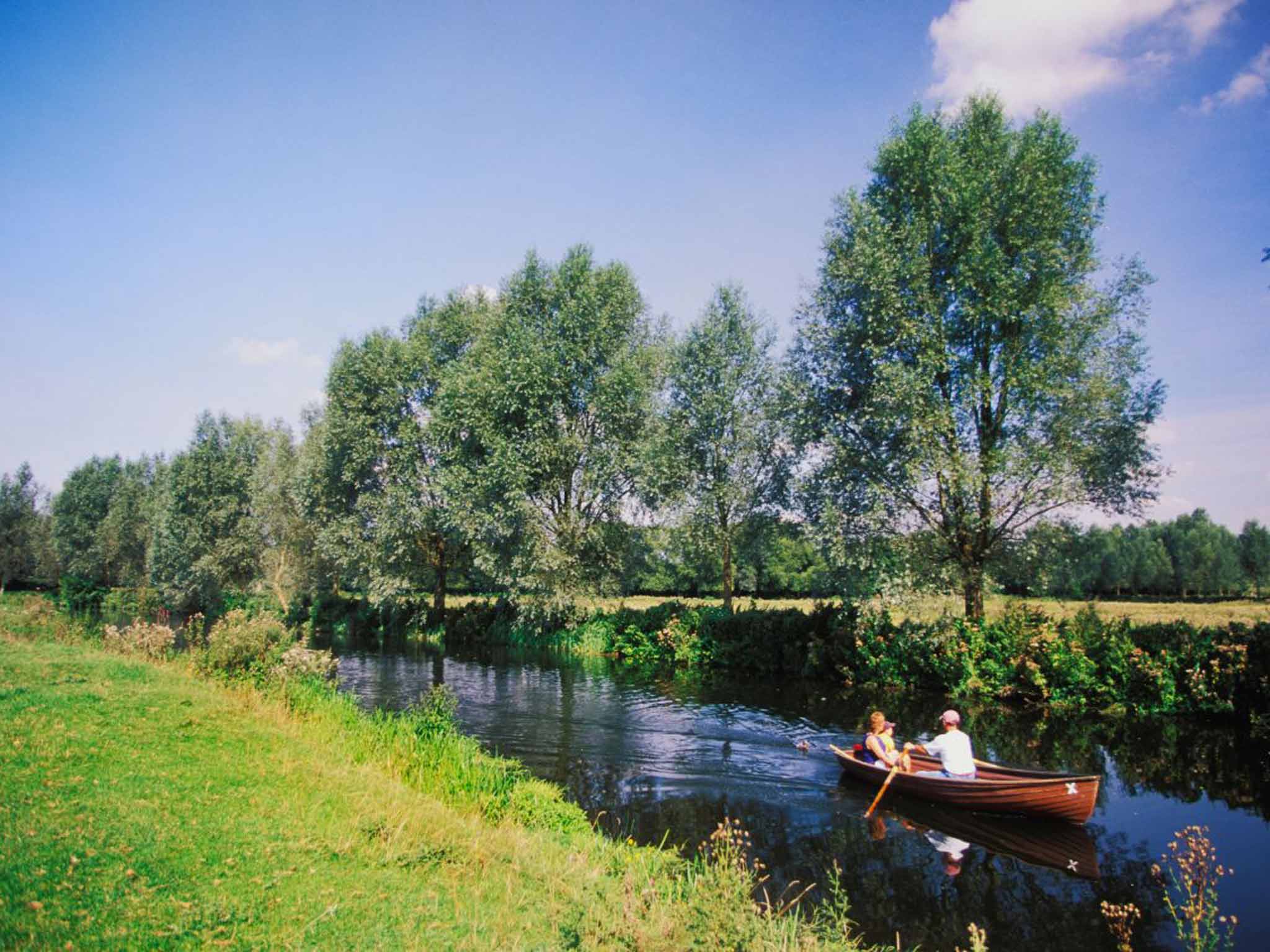Constable Country: Five ways to tour the region that inspired the master painter
As a major exhibition of the artist's works begins at the V&A, Rebecca Ford looks at how we can all enjoy his landscapes

John Constable turned his hand to many artistic subjects over the years, reluctantly painting portraits and the occasional religious image, but he is undoubtedly best known for immortalising the landscapes of East Anglia.
This Saturday sees the opening of Constable: The Making of a Master, an exhibition at the Victoria & Albert Museum (0800 912 6961; vam.ac.uk; £14), where the artist's works will be displayed alongside those of influential 17th-century masters such as Rubens and Gainsborough.
The exhibition, which runs until 11 January 2015, promises to reveal the hidden stories behind the creation of many of Constable's most famous paintings, most of which were inspired by his native landscape, the rural stretches of Suffolk and Essex that surround the River Stour. And now is the perfect time to follow in the artist's footsteps.
Through the artist's eyes
The Field Studies Council (0845 330 7368; field-studies-council.org) offers painting courses, such as Creative Watercolours for Beginners (21-23 November, £248), at Flatford Mill, one of three mills once owned by Constable's father. Accommodation includes Willy Lott's house, which famously featured in the artist's work, The Hay Wain. Pop into St Mary's Church in Dedham, the village where Constable went to school, and you can see one of his rare religious paintings, The Ascension. More works are displayed at the Wolsey Art Gallery in Christchurch Mansion, Ipswich (01473 433554; cimuseums.org.uk; open 10am-5pm Tuesday-Sunday; free). The collection includes some nudes and a view of the vegetable patch at the family home in East Bergholt, now demolished.
Take a hike
Constable Country is best explored on foot. East Bergholt (the artist's birthplace), Dedham and Flatford Mill are all within easy walking distance of Manningtree station (55 minutes from London Liverpool Street). Maison Tolbooth (01206 322367; milsomhotels.com) has gorgeous views of Dedham Vale and makes an ideal base – double rooms with breakfast cost from £220 a night. Three long-distance trails – the St Edmund Way (79 miles), the Essex Way (81 miles), and the Stour Valley Path (60 miles) run through the area to entice more ambitious walkers.
Along the Stour
The clear waters and traditional barges, or lighters, of the River Stour feature in many of Constable's landscapes. Hire a canoe from Outdoor Hire Centre (01206 700 707; outdoorhirecentre.co.uk; prices from £23) and explore independently, or book their two-day Constable Country Highlights self-guided package (£60 per person, minimum two people). Day one is spent walking and cycling; day two canoeing from Nayland to Flatford.
From a natural perspective
The RSPB reserve of Cattawade Marshes sits between two arms of the Stour – one tidal, the other freshwater – and attracts a wide range of birdlife including lapwings, redshanks and skylarks in the spring, wigeon and teal in winter. Pack binoculars and take the footpath from Manningtree station for great views of the reserve. There's also a free, family-friendly RSPB wildlife garden (01206 391153; rspb.org.uk) at Flatford, where Constable painted.
On the taste trail
These fertile landscapes provide excellent food and drink. Hall Farm at Stratford St Mary (01206 322572; hallfarmhop.com) has its own butchery, restaurant and a shop selling local fruit and veg, ice cream, cheeses and preserves. A recent addition to the rural scene is Dedham Vale Wines (01206 271136; dedhamvalevineyard.com), a vineyard on the edge of the Stour Valley. Tour and tastings cost £5 per person (noon-6pm, Wednesday-Sunday, Easter-October).
Constable Country features in our latest film on Essex: bit.ly/EssexKent
Join our commenting forum
Join thought-provoking conversations, follow other Independent readers and see their replies
Comments
Bookmark popover
Removed from bookmarks